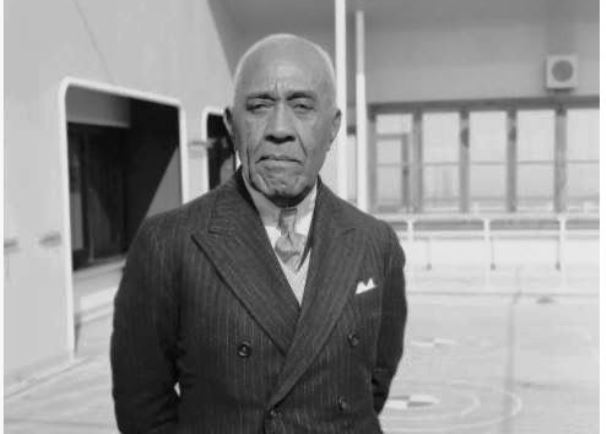Young high chief of Fiji, the late Ratu Sir Lala Sukuna had to deal with the fear of violent death and injury that envelops most soldiers in war but that did not stop him from rising to feats of conspicuous gallantry among the carnage of one of the deadliest conflicts in history.
Highlighting his sacrifices and achievements on the occasion of Ratu Sukuna Day in Suva today, Prime Minister Sitiveni Rabuka said the 27-year-old elected to go to the front line in one of the world’s most devastating wars.
He said Ratu Sukuna’s courage won him the Croix de Guerre and Medaille Militaire as he fought at the Battles of Champagne and Navarin.
“He was hospitalized after injuries he received in the latter action. News media articles recounting some of the details of what he endured are rare.”
“Deryck Scarr’s book, Fiji: The Three Legged Stool, Selected Writings of Ratu Sir Lala Sukuna, contains a number of personal accounts of what the chief saw as the “hell” of warfare.”
“In a letter to Ratu Epeli Gavidi Ganilau from the front, Ratu Sukuna made it clear he was not sure he would survive. He signed off with: “I do not know whether we will meet again.”
“I have read other parts of his correspondence that I reproduce for this message. This is not about glorifying war. What Ratu Sukuna went through speaks to us of why war must be condemned and rejected and, ideally, banished from the Earth.”
“The extracts from his letters of terrible battles are truths of our history and cannot be ignored.”
“Our young people in particular should read them. They can feel pride in Ratu Sukuna’s exploits and courage. At the same time they can cite his experiences as reasons why the world deserves peace, not conflict, and why war is an abomination.”
He said Ratu Sukuna was driven to enlist because the country that had taken Fiji under its wing was threatened.
“For him it was a matter of duty and loyalty. Although his application to join the British forces had been rejected, he was so determined to fight that he joined the French Foreign Legion.”
“In his correspondence with Ratu Epeli, who reportedly had wished to bear arms with him, Ratu Sukuna wrote that at Fort Navarin he was fortunate to have survived.”
“For all of those around me were killed and none of us in the leading sections came back unscathed. The glory of that attack however went to those who followed us, for they overran and captured the German positions that night.”
“The soldier chief wrote that the trenches where his side was positioned were “as big as the Jubilee Church in Suva”.
“He related that bombs emitting yellowish blue smoke and others containing poisonous gas were fired at him and his comrades.”
“…my eyes began to hurt terribly and tears were soon flowing from them.” Wearing goggles helped to ease his pain.”
“It was impossible to raise our heads above the trench to fire at the enemy as bullets were flying all around us…so I just had to sit back …. and smoke.”
“Ratu Sukuna wrote of a “pitiful” sight with many casualties lying fully stretched out or bundled up in the trenches. Some of them were crying and others moaning from the pain of their wounds.”
“Our dead were heaped up by the sides of the communication trenches leading to our war trenches. German soldiers in a trench were told to surrender.”
“No answer came and there was complete silence inside. One of our sergeants threw grenades through the entrance and all of a sudden the Germans cried out ‘Kamerade, Kamerade’ and begged for their lives to be spared. There were many prisoners of war taken that day.”
Rabuka said in correspondence with Ratu Epeli about another encounter, Ratu Sukuna wrote how attacking Germans were mowed down by heavy field guns and machine guns.
“I did not see one of them escape alive. If they had managed to reach our positions, I would probably not have been able to do anything as I was shaking all over. There was not much fighting spirit left.”
“…during the time of the… charge I felt myself out of breath, running was difficult and there was little else to notice except perhaps those fallen behind. When we reached the enemy they were all weak and stunned by the effects of the blast from exploding shells…”
“I’m only describing what I’ve actually seen. The sight of blood causes pain in the stomach and sometimes it’s difficult to stop vomiting.”
“In one action his American friend, the Legionnaire Henry Farnsworth, was killed beside him. Ratu Sukuna got so close to the enemy wire he could look into the eyes of the man who shot Farnsworth.”
“A citation attached to Ratu Sukuna’s award of the Croix de Guerre gave details of him taking many prisoners, and his “superb zeal and courage”.
“Another citation recorded how he “charged a strongly entrenched German position with fixed bayonet and ran forward…covering a great distance in a single leap in spite of stubborn resistance by the enemy and in face of machine gun fire.”
“Citation number three noted the “noblest qualities of courage and endurance”…with an “admirable spirit of sacrifice” when he charged a position that had to be taken. “In spite of the heavy fire from the enemy position he was able to break through right to the German trenches.”
He did not highlight these feats in his letters.”
“But he did ask that news of the wounds in the arms and head that had hospitalized him should be kept from the Fijian people.”
“Two of his injuries were superficial. The third, he wrote, was caused by an explosive ball and would take longer to heal.”
Rabuka said Ratu Sukuna put this dreadful conflict behind him, finished his university studies and embarked on a journey of service to Fiji that leaves us forever indebted to him.
“Let us today imagine Ratu Sukuna’s spirit hovering over Fiji, willing us to walk together further along the road to reconciliation and peace.”
“Let us follow his advice of sacrificing if necessary community interests for the benefit of the whole.”
“May God bless Fiji on this day when we remember and honour one of our most illustrious chiefs,” he concluded.





